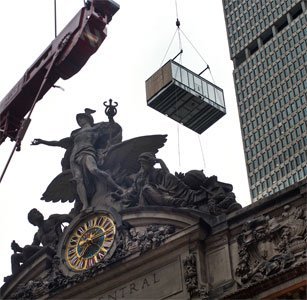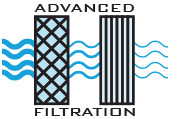To Stop Outbreaks of Legionnaire’s Disease (Legionellosis) and Save in Energy and Lower Maintenance Costs, Consider Filtration for Cooling Towers
A cooling tower is a heat exchanger which contains water. It is used to remove excess heat from buildings as part of their air conditioning, ventilation, and/or heating systems or manufacturing processes. Therefore, cooling towers are used to cool water to extract waste heat into the atmosphere. Thus, when the water contacts the air, some of the water is evaporated. Therefore, it creates a cooling action known as evaporative cooling.
Both New York City and New York State require cooling towers: to meet standards, be registered, be certified, and are subject to be inspected at any time.
The LEGIONELLA Problem:
Cooling tanks are air scrubbers which create gardens for waterborne problems. Thus, any cooling tower is a possible harbor for Legionella.
ASHRAE (American Society of Heating, Refrigerating and Air-Conditioning Engineers) guidelines present basic treatment recommendations for control and prevention of Legionella in cooling towers. As a result, the guidelines state that the principal key to success in Legionella control is system cleanliness.
The September 2000 issue of the ASHRAE journal (pg. 44 – pg. 49) states, “Conditions favorable for amplification of Legionella growth includes water temperature of 77 degrees to 109 degrees Fahrenheit and presence of scale, sediment, and biofilm… Legionella thrives in a diverse complex microbial communities because they require nutrients and protection from the environment.”
In other words, the key to control and prevention of Legionella is maintaining low particle levels which reduces the habitat surfaces and nutrients required for Legionella growth. Low particle levels should be coupled with an appropriate biocidal program of proven effectiveness for control of Legionnaire’s Disease.
In Addition to Controlling Legionella, Cooling Tower Filtration can Reduce Costs and Increase Efficiency
The air drawn through a cooling tower inevitably contains particles of dust, soil, soot, organic debris, and numerous other materials.
In addition to the air, the cooling tower system produces particles including corrosion products, mineral precipitates (e.g. iron oxides, hardness salts), microbiological colonies, and aggregates of organic chemicals. Contamination, by dissolved and particulate materials leaking from the process side of heat exchange equipment, adds to the process by precipitating insoluble chemical products, providing nutrients for accelerated biological growth, and accelerating corrosion and the formation of corrosion products.
The particles in cooling water, when bound together by precipitation of scale-forming minerals, result in increased volume of scale and a thicker scale layer. These layers decrease heat transfer efficiency, reduce flow rate across heat exchange surfaces and encourage corrosion, resulting in additional fouling. Slower flow allows more particles to settle, amplifying the problem and further reducing efficiency.
The Benefits of Removing Particles from a Cooling Water System include:
- Reduced Energy Use: As discussed above by greater efficiency in pumping and heat exchange
- Improved Chemical Performance: As particles consume chemicals used to prevent scaling and corrosion. As a result, dirty water requires more chemicals and receives less effective treatment than clean water.
- Lower Maintenance Cost: Better than traditional methods of cleaning a cooling tower include draining the tower and shoveling sediment from the sump which has significant costs in downtime, labor, lost water and chemicals.
- Improved Productivity and Less Downtime: As a successful water treatment program will include steps to remove or reduce the volume of particles that inevitably collect in any cooling system
Filtration Selection Required for Clean Water
Removal of particles as small as 5 microns is required for effective Legionella control since these small particles constitute the bulk of particulate surface area for bacterial colonization and are most easily incorporated in foul and scale. In addition, many cooling tower operators use centrifugal separators to reduce particle load, but these only remove relatively large (70 microns) or dense (specific gravity greater than 2.6) particles.
In the September 2000 issue of Chemical Engineering, W.C. Meyer states, “Centrifugal separators do not remove very small or low density particles and are, therefore, not appropriate for this purpose.”
Keep Your Cooling Tower Water Clean
Advanced Filtration are experts in the installation and maintenance of all types of cooling tower filtration. In the New York and New Jersey area we partner with Purity Laboratories, Inc. for Legionella sampling, sample testing, and disinfection regimens including:
Arkal Spin Klin® Disc Filter Technology effectively removes suspended particles from systems, reducing chemical usage and maintaining system efficiency.
In Filter Mode: Water flows through the discs from outside to inside. The micro-grooves on each side of the discs form a matrix trapping particulate in the intersections.
In Backwash Mode: Backwash pressure expands the disc column, allowing the discs to “float” while high-pressure jets spray filtered water across the discs.
(More information (pdf) on ARKAL Spin Klin Technology)
AMIAD HVAC Media Filters: HMF, SMF & BMF Media Filters – Self-cleaning, packaged filter systems designed to save you time and money.
(More information (pdf) on AMIAD HVAC Media Filters)



